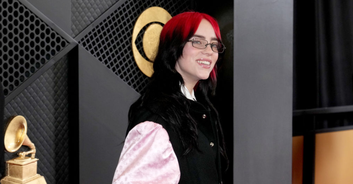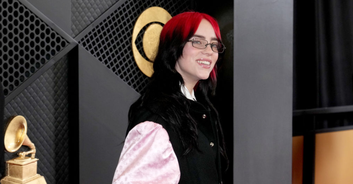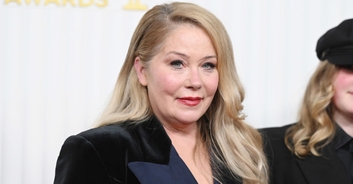Hollywood has a long, ugly history of 'whitewashing,' in which white actors donned grotesque makeup to play characters of different races and ethnicities. These portrayals were often mired in offensive racial stereotypes, plus snatched jobs away from qualified actors of color. As the entertainment industry strives to embrace diversity in the 21st century, actors have come under renewed scrutiny. Is it okay for a cisgender woman to play a transgender man? How about an able-bodied actor portraying a disabled person? Or a Chinese woman playing a white historical figure?
On Tuesday, Gemma Chan, who acted in Crazy Rich Asians and Captain Marvel, has responded to a backlash over her role in the 2018 film Mary Queen of Scots. Chan, who is of Chinese ancestry, played Bess of Hardwick, a notable white countess in Elizabethan English society. "I'm all for inclusive casting, but Gemma Chan as Bess of Hardwick is probably pushing the limits of my suspension of disbelief," wrote one critic on Twitter.
In an interview with Allure, Chan said her heritage is fully Chinese but her racial identity is "compound. I feel British, and European, and English, and Chinese, and Asian." When asked about the controversy over her portrayal of Bess of Hardwick, she replied, "Why are actors of color, who have fewer opportunities anyway, only allowed to play their own race? And sometimes they’re not even allowed to play their own race."
"In the past, the role would be given to a white actor who would tape up their eyes and do the role in yellowface," she continued. "John Wayne played Genghis Khan. If John Wayne can play Genghis Khan, I can play Bess of Hardwick." Chan added, "I feel like [the Broadway play] Hamilton opened minds a lot. We have a black man playing George Washington. They describe it as ‘America then, told by America now.’ And I think our art should reflect life now."
Chan goes on to describe an example of whitewashing history, which she discovered while working on a documentary about the Chinese Labour Corps. "I studied the First World War three times at school," she recounted. "And I never heard that there were 140,000 Chinese in the Allied effort. We would not have won the war without them."
A massive mural was built to commemorate that war, but the section dedicated to the Chinese was reportedly painted over after American military forces joined the conflict. "They left one kneeling Chinese figure, which you can still see," Chan recalled. "If people understood that, my parents [might not] have been told, ‘Go home, go back to where you came from’ multiple times. If we portray a pure white past, people start to believe that’s how it was, and that’s not how it was."
To Chan, playing a white historical figure in Mary Queen Scots is a victory for visibility regarding Asian-American actors in cinema.





.jpg_gqgERZ?tr=h-40&config=JTdCJTIybmFtZSUyMiUzQSUyMmxhbmElMjAoMSkuanBnJTIyJTJDJTIyZGVzY3JpcHRpb24lMjIlM0ElMjJGZWF0dXJlZCUyMGltYWdlJTIwY3JlZGl0JTNBJTIwRXRoYW4lMjBNaWxsZXIlMjAlMkYlMjBHZXR0eSUyMCUyMiUyQyUyMmFsdGVybmF0aXZlX3RleHQlMjIlM0ElMjJsYW5hJTIwKDEpLmpwZyUyMiUyQyUyMmNhcHRpb24lMjIlM0ElMjJMYW5hJTIwUmhvYWRlcyUyMiUyQyUyMmNvb3JkaW5hdGVzJTIyJTNBJTdCJTIyZGVza3RvcCUyMiUzQSU3QiUyMmxlZnQlMjIlM0EwJTJDJTIydG9wJTIyJTNBMCUyQyUyMnJpZ2h0JTIyJTNBMSUyQyUyMmJvdHRvbSUyMiUzQTAuNTIlN0QlMkMlMjJ0YWJsZXQlMjIlM0ElN0IlMjJsZWZ0JTIyJTNBbnVsbCUyQyUyMnRvcCUyMiUzQW51bGwlMkMlMjJyaWdodCUyMiUzQW51bGwlMkMlMjJib3R0b20lMjIlM0FudWxsJTdEJTJDJTIybW9iaWxlJTIyJTNBJTdCJTIybGVmdCUyMiUzQW51bGwlMkMlMjJ0b3AlMjIlM0FudWxsJTJDJTIycmlnaHQlMjIlM0FudWxsJTJDJTIyYm90dG9tJTIyJTNBbnVsbCU3RCU3RCUyQyUyMndpZHRoJTIyJTNBMTUzNSUyQyUyMmhlaWdodCUyMiUzQTgwMCU3RA==)




.jpg_gqgERZ?tr=h-184&config=JTdCJTIybmFtZSUyMiUzQSUyMmxhbmElMjAoMSkuanBnJTIyJTJDJTIyZGVzY3JpcHRpb24lMjIlM0ElMjJGZWF0dXJlZCUyMGltYWdlJTIwY3JlZGl0JTNBJTIwRXRoYW4lMjBNaWxsZXIlMjAlMkYlMjBHZXR0eSUyMCUyMiUyQyUyMmFsdGVybmF0aXZlX3RleHQlMjIlM0ElMjJsYW5hJTIwKDEpLmpwZyUyMiUyQyUyMmNhcHRpb24lMjIlM0ElMjJMYW5hJTIwUmhvYWRlcyUyMiUyQyUyMmNvb3JkaW5hdGVzJTIyJTNBJTdCJTIyZGVza3RvcCUyMiUzQSU3QiUyMmxlZnQlMjIlM0EwJTJDJTIydG9wJTIyJTNBMCUyQyUyMnJpZ2h0JTIyJTNBMSUyQyUyMmJvdHRvbSUyMiUzQTAuNTIlN0QlMkMlMjJ0YWJsZXQlMjIlM0ElN0IlMjJsZWZ0JTIyJTNBbnVsbCUyQyUyMnRvcCUyMiUzQW51bGwlMkMlMjJyaWdodCUyMiUzQW51bGwlMkMlMjJib3R0b20lMjIlM0FudWxsJTdEJTJDJTIybW9iaWxlJTIyJTNBJTdCJTIybGVmdCUyMiUzQW51bGwlMkMlMjJ0b3AlMjIlM0FudWxsJTJDJTIycmlnaHQlMjIlM0FudWxsJTJDJTIyYm90dG9tJTIyJTNBbnVsbCU3RCU3RCUyQyUyMndpZHRoJTIyJTNBMTUzNSUyQyUyMmhlaWdodCUyMiUzQTgwMCU3RA==)